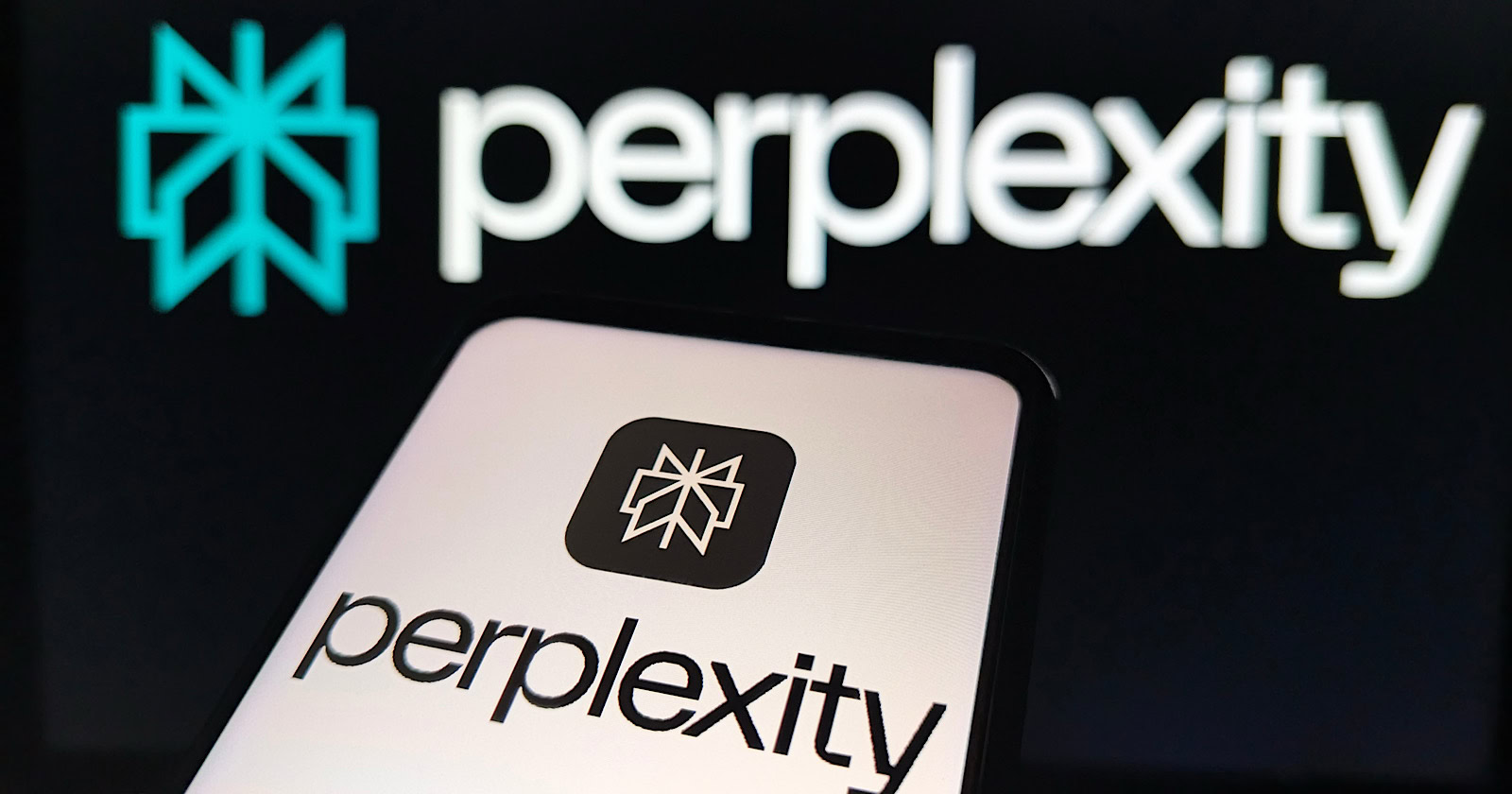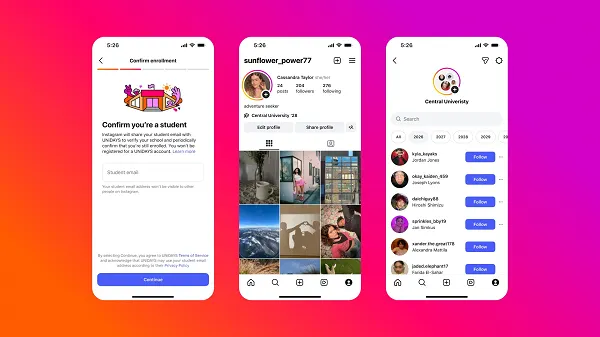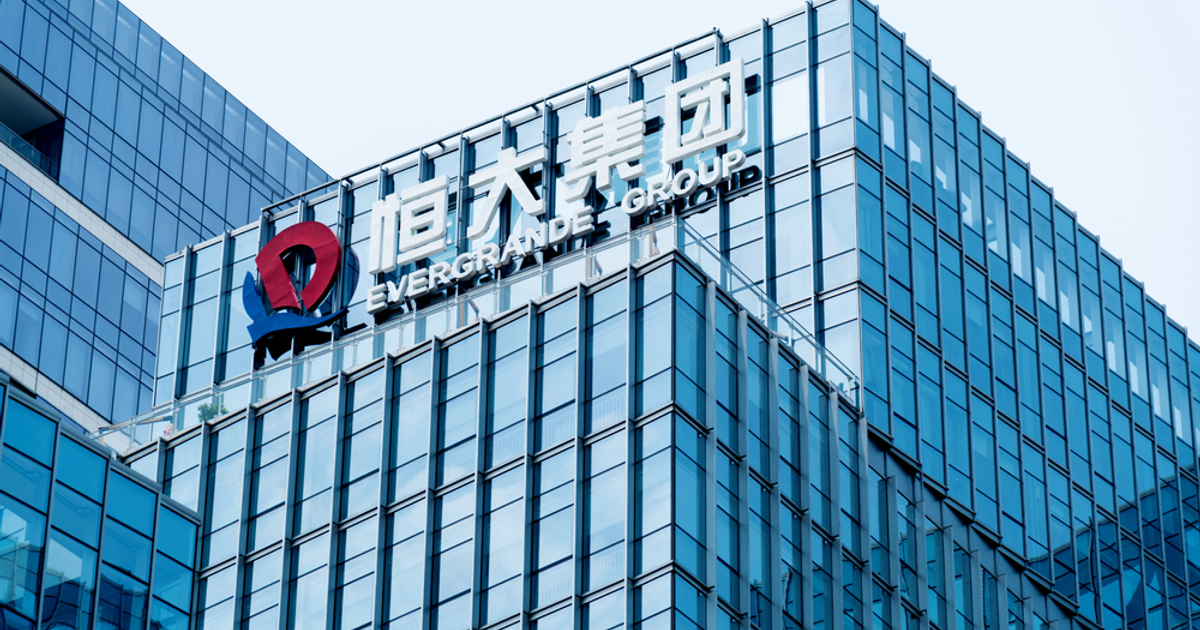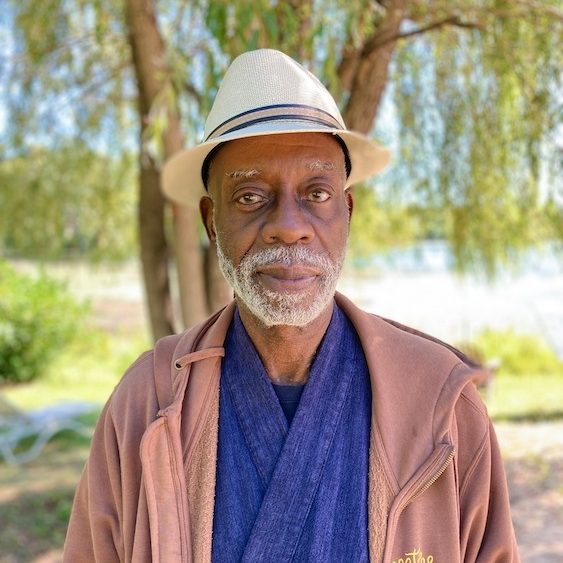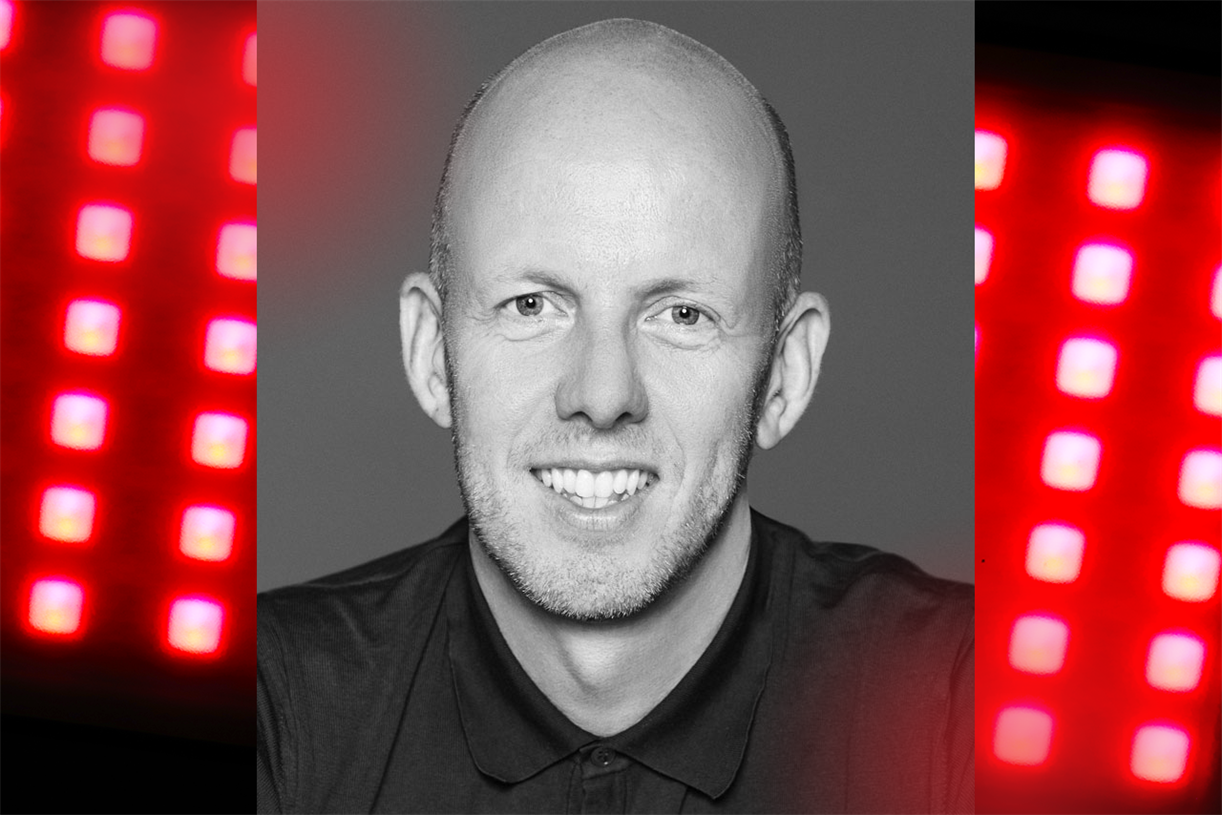13 Cannes Lions takeaways, from diversity to Web3 and Netflix
Purpose-driven work and a possible recession were also trends that were top of mind.

The Cannes Lions International Festival of Creativity returned in person for the first time since 2019 and it was as frenetic and eventful as ever. One executive suggested that attendance was slightly smaller than usual, but felt it was much more “personal” than in years past as agencies and their clients returned to the Croisette. Web3, a possible recession, diversity, and Ukraine all took center stage in conversations this week along with the usual chatter about award winners. Here are some of the takeaways from the festival.
The work has to matter
The lion’s share of top winners were not only ideas that made a difference to a brand—they made a difference to the world as well.
Products and services developed by agencies, in particular, were in the spotlight. VMLY&R won twice in Pharma and Health & Wellness, for having helped develop a system that archives voices of people losing theirs to motor neuron disease and a mosquito repellent that also kills mosquito larvae after it’s thrown away. DDB Mexico also won a Glass Grand Prix for a system that provides credit ratings to women in Mexico who have never had them.
Theories as for why products and services were such a hot trend ranged from agencies taking inspiration from 2021’s honors for Wunderman Thompson’s work on Unilever’s Dove Inclusive brand; shops getting greater respect from clients for product development capabilities; and that the competition from other types of creative work were simply being weaker this year, perhaps because working from home may be more conducive to engineering than other creativity.
Web3 continues to be a hot topic
Web3’s footprint during the festival was noticeable in programming and activations.
On VaynerX’s yacht on the Sunday before Cannes, Cindy Gallop was on a panel in which she discussed sex and NFTs. VaynerMedia’s CEO Gary Vaynerchuk spoke with Paris Hilton during a panel at the Palais where she described herself as the “Queen of the Metaverse.”
Related: Paris Hilton talks metaverse with Ad Age
There were plenty of metaverse activations, including Wunderman Thompson’s Inspiration Beach and VaynerX’s virtual yacht party. McCann unveiled “MWverse,” a virtual gallery that housed the agency's most memorable campaigns of the year. With Cannes over, the gallery will evolve into an experimental space that can be used by McCann’s clients for meetings, building new campaigns and hosting events.
Meta recreated the French Riviera in a world called “Cloud Island,” where visitors could play volleyball as virtual avatars or simply take in the view. Meta also announced new partnerships with guitar-maker Fender and car company Mini, both of which unveiled virtual experiences in Horizon Worlds (also the home of “Cloud Island”).
Read more about Meta's virtual world
The Female Quotient hosted its “Equality Lounge” which is a women’s networking forum in person and virtually on Decentraland.
Stunts focused on sustainability
Greenpeace and the creative advocacy group Clean Creatives made their presence felt with a series of stunts and social media tactics to raise awareness about environmental issues.
Former Crispin Porter & Bogusky Europe exec Gustav Martner, who is also a previous Cannes Lions winner and jury member (and now a Greenpeace activist) crashed the opening ceremony of the 2022 festival to give back the award he won in 2007. Afterward, he wrote a post for Euronews titled “Winning a Cannes Lion made me a climate criminal. So I crashed the stage to hand it back.”
On the third day of the festival, French Greenpeace protestors dressed in dog costumes staged a beach invasion. The inspiration for the dog costumes came from the "This is Fine" meme of a cartoon dog with flames burning behind him. The organization takes issue with the ad industry’s creation of ads for fossil fuel companies. The social media hashtag #BanFossilAds was displayed on protest signage.
Throughout the week at Cannes, Clean Creatives used climate change-themed mirrors that say, “This person is impacted by climate change” and signage that asked Cannes attendees whether they want to work with fossil fuel clients or solve climate change. They also took to Instagram, Twitter and TikTok to share Cannes messaging, such as calling out Omnicom Group for working with major fossil fuel industry players such as ExxonMobile, American Petroleum and the National Gas Industry in Canada, among others.
This isn’t the first time these types of protests occurred at Cannes. In 2019, the last time the festival was in person, a group called Extinction Rebellion stormed Facebook Beach. Back then, the protesters were promptly arrested and hauled away by local police.
Ukraine was top of mind
Ukraine was an ongoing topic throughout the week.
On Monday, the Russia-Ukraine war took center stage at the Palais des Festivals in Cannes with the appearance of Ukraine President Volodymyr Zelenskyy and Garry Kasparov, the Russian chess champ and exile, imploring the industry to keep Ukraine in focus. The Cannes Lions International Festival of Creativity did just that on its second night, when it awarded the Digital Craft Grand Prix to “Backup Ukraine,” a campaign from the United Nations Educational, Scientific and Cultural Organization (UNESCO) and Blue Shield Denmark. The campaign was designed to help preserve the country’s cultural artifacts in the midst of war.
Two days later, WPP announced during a session in the Palais with Oleksandr Tkachenko, minister of culture and information policy of Ukraine, that it would join a partnership to attract investment into the country to help rebuild its economy. The announcement came just two days after Ukrainian President Zelenskyy made his surprise virtual appearance at Cannes in which he called on creatives to help his embattled country.
Through an initiative called “Advantage Ukraine” involving WPP shops in Ukraine, Poland, and the Czech Republic, business leaders will be encouraged to invest in Ukraine to support its recovery.
“We want the world to know that Ukraine is still open for business and has the potential to be a key cultural and digital technology European hub,” Tkachenko said.
The day after WPP’s announcement, HP launched an effort at the Cannes Lions CMO Accelerator to get participants to hire Ukrainian creatives for projects they can do remotely.
Jose Gorbea, global head of brands, agencies and sustainability innovation for HP Indigo—the company’s graphics and packaging business—gave a presentation on purpose in a class, led by former Procter & Gamble Co. chief marketer, now consultant, Jim Stengel. Gorbea gave participants boxes that included personalized messages and stories from one of 40 individual creatives who are refugees from Ukraine, complete with QR codes to facilitate contact. Two Ukrainian creatives joined Gorbea live at the event, tearfully recounting their stories, and then later joining the group for a harbor cruise.
Conversations were had about diversity and bias
Diversity and bias were other major conversations during the festival—one executive described this year’s festival as one of the most diverse Cannes they've ever attended. Group Black’s Inkwell Beach, in particular, featured diversity-focused panels all week. During IBM’s Monday panel, which featured executives from WPP, its Mindshare and Ogilvy agencies, Delta Air Lines and the Ad Council, panelists spoke about using artificial intelligence to eliminate bias in media planning, programmatic buying and creative optimization.
However, there were some points of contention as well.
“Brazil is racist as fuck,” said Cindy Gallop, never one to mince words, in explaining during a Cannes panel Friday afternoon why she’d supported a “Dear Simon” letter from P&C, a collective that last month released it to Simon Cook, the Cannes Lions CEO. The letter pointed out that only one of 24 jurors from Brazil was Black.
Gallop said she encountered the problem firsthand when she headed BBH and opened a Brazilian office.
“When the Brazilian advertising industry does not face up to own and solve its racism, it is failing to do the best creative work,” she said. “We have not even begun to see how amazing Brazilian creativity can be when the Brazilian advertising industry stops being racist as fuck.”
Gallop also said she still wants the Cannes Lions to do what she first suggested to Cook in 2019—move Inkwell Beach, the beach activation that highlights diversity, equity and inclusion, next to the Palais, so Black creatives there are more visible. “I’ve had to schlep all the way down the Croisette to Inkwell Beach,” she said.
Agencies showed up in a big way
While it’s true tech companies have taken up a majority of the spaces throughout Cannes—and this year was no different—agencies still occupied their fair share of spaces and parties. VaynerX, Accenture Song, and FCB had their own yachts while WPP, Dentsu, and IPG/FCB opened their own beach spaces. Havas Cafe was beautifully displayed near the back entrance of the Grand Hotel.
Media.Monks threw a massive party in collaboration with Massive Music on Wednesday and Publicis hosted its own Thursday party on the beach with cocktails named after Chairman and CEO Arthur Sadoun and his predecessor Maurice Levy. (Maurice’s drink seemed to be more popular.) Wieden+Kennedy held a rooftop party on Tuesday that served McDonald's chicken nuggets to guests, among other food items.
There was much interest in Netflix’s ad business
Netflix, which previously was adamant that it would never run ads, finally opened the doorway to selling commercial inventory in April, which made Cannes ripe for conversations around the streaming giant’s ad business.
On Monday, as the festival kicked off, Ad Age reported that Google was one of the main contenders to partner with Netflix on advertising. “If it’s anyone, it’s going to be Google,” said one advertising executive, who is familiar with the inner workings of both companies.
Later in the week, Ad Age caught up with Google’s Allan Thygesen, president of Americas and global partners.
“All I can say about that is, look every streaming service, I think, is going to have an ad-supported version, and I wasn’t surprised to see even Netflix is going to go there,” he said. “I think they have a fantastic set of products and they’ll be successful. My understanding is they’re out talking to people, and that’s as much as I can say about it.”
Procter & Gamble Chief Brand Officer Marc Pritchard during a panel didn’t share any details about Netflix’s ad-supported service but said, “We’re definitely interested. We’re all ears.”
During a panel on Thursday, Ted Sarandos, co-CEO of Netflix, brushed off the specifics regarding any ad deal with any partners, saying that Netflix is “talking to all of them.” He did say that the primary box a potential partner should check is “a pretty easy entry to the market.”
The 'new' Carlton Terrace was found
With the Carlton Hotel closed this year due to renovations, many were wondering what venue would take its place as the festival’s go-to hotspot. The places to be just seemed to move further down the Croisette to the Gutter Bar and the Martinez. “This is the new Carlton Terrace,” one agency leader said amidst the revelers on the first night. “This is definitely a superspreader event,” commented one passerby about the swarming crowd, not a mask in sight. Each night two crowds spilled out onto the street with marketing and agency executives, nearly forming one giant sea of individuals until about 4 a.m. most nights.
The industry is girding for an economic downturn
Multiple agency executives Ad Age spoke to mentioned that clients are gearing up for a potential economic downturn. One agency executive even specified that clients are expected to soon lower their marketing budgets or pause them altogether.
Philippe Krakowsky, chief executive of Interpublic Group of Cos., said during a panel conversation that there was no evidence of a marketer pullback in its numbers, but that clients do appear to be bracing for any impact, according to an article by the Wall Street Journal.
“They see the clouds and they’re starting to put away the lawn furniture…or batten down the hatches,” he said.
But economic concerns didn’t stop companies like Meta, Spotify, and Twitter from building out seaside spaces during the festival
Related: What's next for ad spending?
Celebrities played a big role
From musical performances to panels, celebrities were a big part of Cannes this year. Actor and Chief Creative Officer of MNTN Ryan Reynolds spoke on several panels during the festival. During one, he announced the formation of an organization called Creative Ladders dedicated to increasing diversity in the marketing industry.
Reynolds also spoke with the global CEO of Dentsu International Wendy Clark about the formation of his Maximum Effort agency and other thoughts he has about the industry. One example was Reynolds’ view on the Super Bowl.
“The only critique I would have—and some of the Super Bowl ads I’ve seen are just miraculous—but sometimes the product disappears. You’re seeing an ad that’s so funny, but afterwards I’m talking about the actor who was in it but I couldn’t tell you about the products was that they were talking about.”
Other panels during the week featured music star Megan Thee Stallion, "Insecure" star Issa Rae, Paris Hilton, NFL quarterback Russell Wilson, among others. Spotify Beach also played a large role during the week and was one of the most popular locations at Cannes. The venue featured performances from Kendrick Lamar, Dua Lipa, The Black Keys, Post Malone, DJ Pee Wee, aka Anderson .Paak. Inkwell beach featured a surprise performance by rap legend Nas and LCD Soundsystem played a set at Amazon’s brand village. VIP events also featured a dinner with a performance by Kylie Minogue and a VIP dinner with a performance by Sam Smith hosted by iHeartMedia and MediaLink at Hotel du Cap-Eden-Rock.
Brand activations were everywhere
There were some notably popular brand activations beyond the beaches and yachts hosted by all types of companies such as Twitter, Pinterest, and Meta. One was the Reddit Explorer’s Club, which included Reddit opinions that attendees could physically upvote or downvote.
Shutterstock made its mark through its 3D gallery experience, in which it showcased some of its nearly 2 million virtual avatars that it now sells for between $60 and millions of dollars, depending on customization and is available for use in any virtual space.
The activation was created just seven weeks before the festival, according to Shutterstock’s Chief Revenue Officer Jamie Elden. The outside structure of the activation was wrapped in walls of LED screens with moving designs that especially came alive at night. The activation also featured the chance to have one’s portrait shot by photographer David Fisher and the opportunity to mint it into an NFT. Shutterstock launched a new fund targeted specifically at improving access and representation in the world of 3D. Under its Create Fund Artist Investment Program, Shutterstock is offering a total of $30,000 in production grants to three 3D artists from diverse backgrounds.
A partnership between Vogue and Snapchat took over the Centre d’art La Malmaison, featuring fresh-off-the-runway designs from Balenciaga, Dior, Gucci, Kenneth Ize, Richard Quinn, Stella McCartney and Versace. Each designer’s room is decked out in their respective styles—pure gold for Versace, mushrooms and flowers sprouting from the walls for McCartney—that come alive via a showcase of Snapchat’s AR functionality. Each room included a mirror that clothed the viewer in the displayed looks à la Cinderella’s Fairy Godmother.
Creativity got its shout out
Despite clients focusing on meeting with streaming and tech platforms, creativity got a shoutout and data science got some doubters. A Roku executive at an Experian panel noted the most effective part of the platform’s exclusive ad deal with Walmart wasn’t the ease of use or paying, but the creative behind it. At an OpenAP panel, EDO CEO Kevin Krim said that big brand creative campaigns, not special offers or activations, most drives search response in TV ads.
In a panel on IBM’s offer of free bias mitigation algorithms for artificial intelligence systems, WPP CEO Mark Read and Mindshare Global CEO Adam Gerhart said programmatic media buying and propensity modeling may be making marketers focus too narrowly and miss opportunities.
“Media technology has run its course,” said Andrew Swinand, CEO of Leo Burnett Group and of Publicis Groupe Creative and Production U.S, in an interview. “Content consumption is flat. So the quality is becoming the source of competitive advantage.”

 Fransebas
Fransebas 























